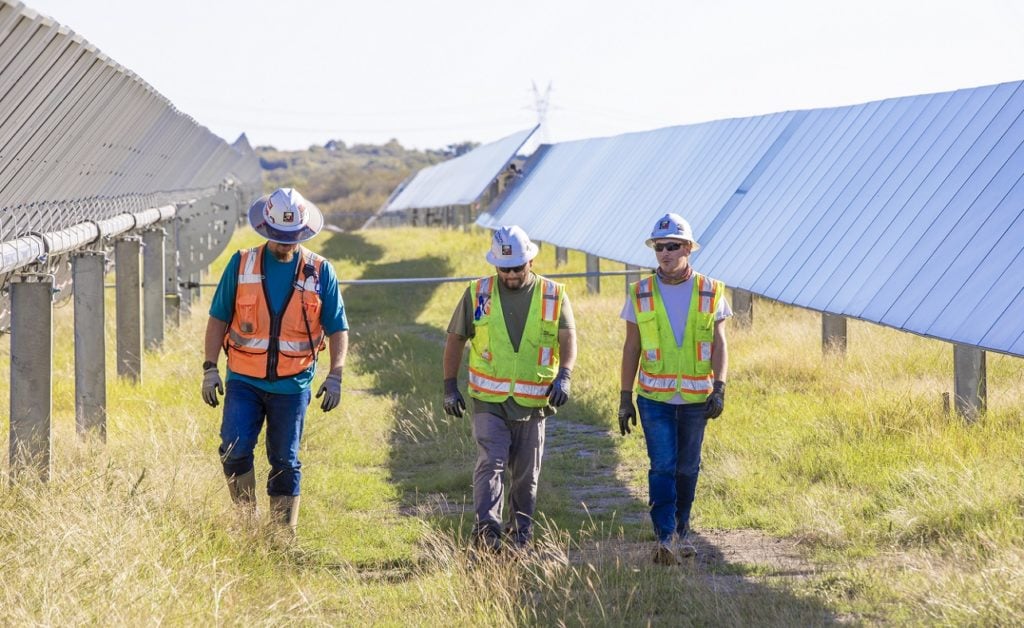
Accessing adders under the Inflation Reduction Act (IRA) relating to domestic content requirements and local labour usage are now receiving far more attention than issues around imports, according to energy law firm Baker Botts.
While the industry is welcoming the “long-term stability” the IRA provides, there is still uncertainty regarding the rules around domestic content as well as how to best access adders such as prevailing wages and apprenticeships, according to Eli Hinckley and Ellen Friedman, partners at Baker Botts.
Try Premium for just $1
- Full premium access for the first month at only $1
- Converts to an annual rate after 30 days unless cancelled
- Cancel anytime during the trial period
Premium Benefits
- Expert industry analysis and interviews
- Digital access to PV Tech Power journal
- Exclusive event discounts
Or get the full Premium subscription right away
Or continue reading this article for free
The lawyers were speaking to PV Tech at the RE+ 2022 industry event in Anaheim, California.
This uncertainty regarding how to access the maximum number of incentives under the IRA is coming up more often then questions around forced labour evidence packages or the legality of recent executive orders, the partners said, demonstrating the desire from the US solar sector to exploit support contained within the IRA.
The uncertainty is broadly related to the absence of clear rules for domestic content thresholds, how much of a solar product’s components need to be US-made to qualify for the support and a lack of clarity on prevailing wages and apprenticeship adders, Hinckley and Friedman said.
Since the IRA passing, many companies have expressed their desire to buildout their US manufacturing bases in order to cater for projected US demand but legal issues will remain if all of the components of that product need to be sourced from the US. Given the US is still significantly lacking in terms of the upstream PV production of polysilicon, ingots and wafers, this could be a pertinent issue moving forward, Friedman told PV Tech.
On top of this, the siting of upstream facilities such as polysilicon may throw up their own legal questions. Polysilicon production, for example, is extremely energy intensive and emits large amounts of carbon. Communities may challenge any proposed project on environmental grounds, dragging the process on and lengthening timeframes, the partners noted.
PV Tech Premium has previously reported how US developers are stockpiling PV modules for 2024 as they become increasingly unsure about what happens when President Joe Biden’s executive order waiving tariffs from Southeast Asia runs out.
At the time, Baker Botts special counsel Kyle Hayes, said he has clients who are working hard to “secure capacity and pricing for 2025 to 2027, understanding that the Biden tariff waiver will expire in June 2024,” he explained, “so they’re trying to get ahead of that if the worst-case scenario manifests itself.”






